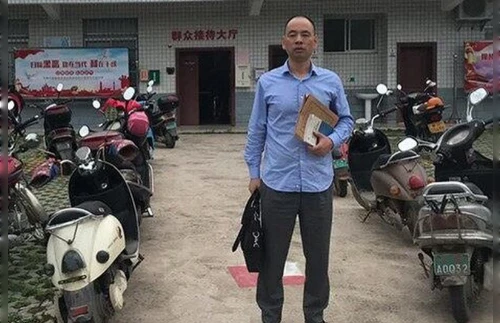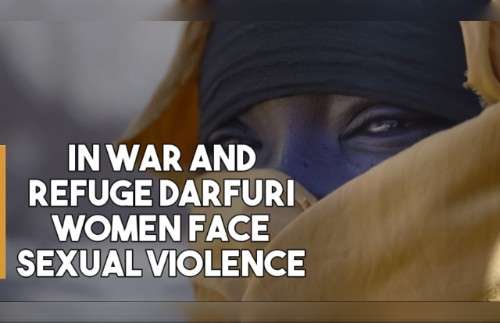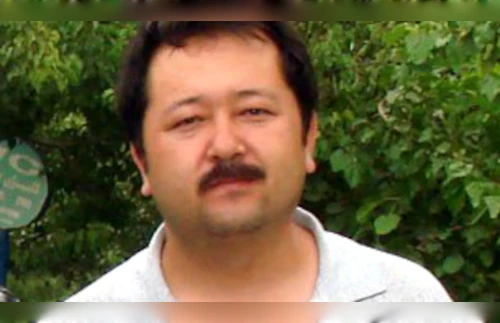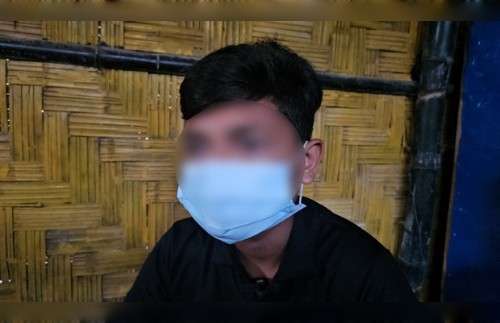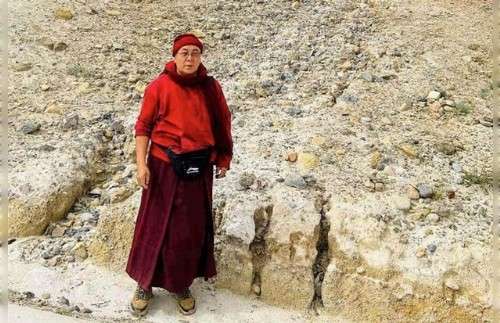Authorities sentenced biology instructor Shawkat Abdulla to 25 years in prison for four ‘crimes.’

A Uyghur college instructor charged in 2018 with four different “crimes” amid a crackdown by authorities on Uyghur educators and intellectuals is serving a 25-year sentence in China’s Xinjiang Uyghur Autonomous Region (XUAR), sources in the region said.
The detention of Shawkat Abdulla first came to light two years ago when his younger brother, Parhat Abdulla, who lives in Norway, reported Shawkat’s sentencing to the Uyghur Transitional Justice Database — a Norway-based project that records disappeared and extrajudicially detained Uyghurs in the XUAR. Few other details about his case were available, however.
RFA’s Uyghur Service, which has been investigating the case over the past two years, recently learned further details about Shawkat’s arrest and sentencing through sources in the XUAR.
According to the Uyghur Transitional Justice Database, Shawkat graduated with a degree in biology from Xinjiang Normal University in 1993, after which he began working as an instructor at Ili Normal College, a teacher’s college in Ghulja city (in Chinese, Yining) in the Ili Kazakh (Yili Hasake) Autonomous Prefecture. During the course of his 25-year career, he served in both academic and administrative capacities.
But authorities deemed Shawkat, who had received praise from the college’s leaders in the past, a “suspect” in the summer of 2018 as they rounded up Uyghur educators and other intellectuals and took him away to “study” — a euphemism for detention in a “re-education camp.” Authorities apprehended Shawkat in the middle of the night, placing a black hood over his head as they led him away.
Shawkat’s family members did not know where he was being held and were unable to obtain information about him from relevant authorities in the prefecture. They went to the XUAR’s capital Urumqi (Wulumuqi, in Chinese) to try to get information about his whereabouts, but did not find out anything.
Parhat Abdulla said he eventually learned from friends and acquaintances in Chinese provinces outside the XUAR that authorities had accused his brother of a series of “crimes” and sentenced him to prison.
Shawkat was widely known for his social activity and role as an organizer as well as for his accomplishments in the field of education, said a source familiar with the situation in Ghulja and the fate of Uyghur detainees there.
Government authorities also recognized these qualities in Shawkat, and for a time employed him as an administrative officer in the municipal branch of the Bureau of Education, said the source, who declined to be named.
But Shawkat’s concern about “ethnic issues” concerning the Uyghurs while on the job displeased his Han Chinese superiors and colleagues at the bureau, and he was sent back to his former teaching position, the source said.
A ‘sensitive’ case
Authorities detained Shawkat during the early days of the mass internment campaign because he had expressed critical opinions and advocated for the protection of Uyghur schools when it came to the allocation of finances and facilities, this person said.
The “re-education camps” that China set up beginning in 2017 are believed to have housed 1.8 million Uyghurs and other Muslims, according to sources from the region. China says the camps are vocational training facilities set up to combat religious extremism and terrorism in the predominantly Muslim XUAR.
Authorities also have targeted Uygur educators at schools and other educational institutions in the region in an effort to wipe out Uyghur language and culture.
An Ili Normal College official refused to comment on Shawkat’s case on the grounds that it was “sensitive,” but he indirectly acknowledged that the instructor was being held in some form of state custody.
“We can’t talk about this situation on the phone,” he said. “It’s sensitive for us. There’s no way I can talk about it.”
An official at the Bureau of Education in Ili prefecture said he was unable to give RFA any details about Shawkat when a reporter called to verify the information.
When RFA contacted the municipal branch of the education bureau in Ghulja for information about Shawkat, a female employee said her office was staffed entirely by ethnic Han Chinese.
A male employee at the Ghulja branch of the education bureau said all the employees were newly recruited young people and that they had no knowledge of what older individuals like Shawkat had done on the job.
The employee, who did not give his name, avoided answering questions when RFA pointed out that Shawkat was middle-aged and asked whether there was anyone by his name among former bureau workers who had been detained.
Four alleged ‘crimes’
After authorities apprehended Shawkat for his views on Uyghur educational policy and took him to a camp, they accused him of alleged “crimes” they said he had committed 20 years earlier, said the source who is familiar with the detainee situation in Ghulja.
Authorities cited Shawkat’s participation in a meshrep — a traditional male Uyghur gathering that typically includes poetry, music, dance, and conversation — that was implicated in the 1997 Ghulja Massacre as evidence of the “crime of ethnic separatism,” the source said.
Uyghur demonstrators in Ghulja participated in a nonviolent protest in early February 1997, calling for an end to religious repression and ethnic discrimination in the city. Chinese authorities violently suppressed the protest and detained and sentenced hundreds of Uyghurs to lengthy prison terms.
Rights groups and Uyghur exile groups commonly refer to the event as the Ghulja Massacre, citing reports that some 200 Uyghurs were executed during a subsequent crackdown.
During their interrogations of Shawkat, authorities tried to accuse him of as many “mistakes” as possible and of having committed as many “crimes” as possible as justification for meting out a lengthy prison sentence, said the source familiar with the situation in Ghulja.
They also pointed to his phone conversations with his brother when they discussed books used as evidence of “separatism” against him, Parhat said.
“I always had him send me books — good books that had been published by presses back in the homeland,” he said.
Authorities also cited Shawkat’s transfer of money to his brother in Norway for a house purchase as evidence of “aiding terrorists,” Parhat said.
“My brother put something like 50,000 yuan [U.S. $7,730] in my account,” he said.
“It wasn’t very much in Norwegian currency,” he said. “They [my parents] wouldn’t have been able to go to the bank and transfer the money because they’re older, so of course my brother went and took care of it, and because of that, someone apparently said he’d transferred money abroad.”
A police officer working in national security in Ghulja confirmed that this was the case, stating that Shawkat had had a “problem” that arose concerning the use of his phone.
Authorities also accused Shawkat of a fourth “crime” of having violated official birth-control policy limiting to two the number of children that ethnic minority couples could have, though he already had paid a fine at the time of his third child’s birth, according to the source familiar with the situation in Ghulja.
Shawkat was sentenced to a total of 25 years in prison for all four offenses, according to another relevant official in Ghulja who confirmed that he was an employee of Ili Normal College.
She responded with a “correct” when asked by RFA about the length of Shawkat’s prison term, confirming all the information recorded about his case in the Uyghur Transitional Justice Database.
Reported by Shohret Hoshur for RFA’s Uyghur Service. Translated by the Uyghur Service. Written in English by Roseanne Gerin.
© 1998-2020, RFA. Used with the permission of Radio Free Asia, 2025 M St. NW, Suite 300, Washington DC 20036. https://www.rfa.org





